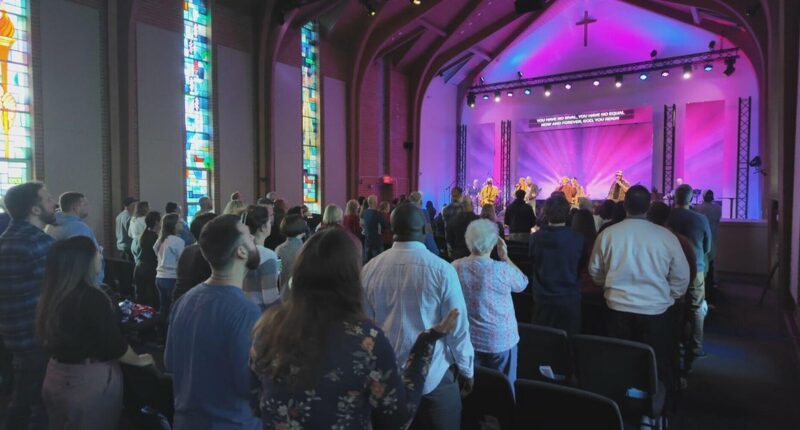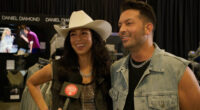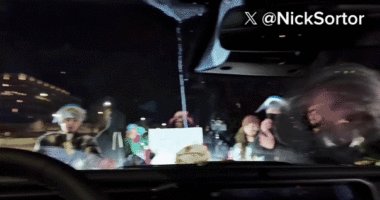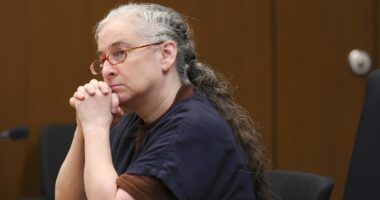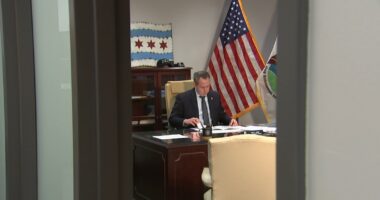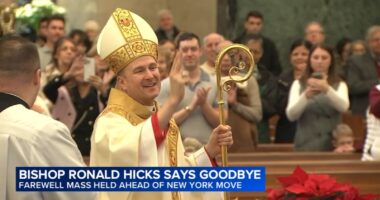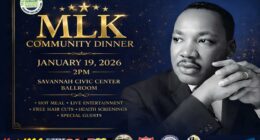Share this @internewscast.com
Just outside St. Louis, Missouri, Rooftop Church offers a refreshing twist on traditional church attire, favoring casual wear like baseball caps and jeans over the more formal collars and frocks.
Leading the congregation is Pastor Matt Herndon, who sets a distinctive tone each Sunday.
“When newcomers arrive, they often notice things they might not expect in a typical church setting,” Herndon explained. “For instance, they might see me wearing a hat or watch a video clip from ‘Beauty and the Beast.’ Our goal is to engage people in a way that’s relatable and accessible.”
Rooftop Church is among the estimated 40,000 nondenominational Christian churches in the United States. While its teachings are firmly based on the Bible, it operates independently. What began nearly 25 years ago in a local community center now draws up to 600 attendees weekly.
“Nondenominational Christianity is currently the most dynamic force in American Christianity,” stated Ryan Burge, a professor at Washington University who studies the influence of religion on American life. “These churches emphasize a personal relationship with Jesus Christ. Many preach a conservative gospel on issues like abortion and same-sex marriage, but these aren’t typically the first topics they address.”
Back in 1972, less than 3% of Americans identified as nondenominational Christians. Today, that figure has risen to 14%, representing nearly 40 million people, according to the General Social Survey.
Burge believes it’s possible nondenominational Christians could overtake Roman Catholics in the next 15 years to be “the largest religious tradition in America.”
“I think it’s, we’re moving away from authority structure,” Burge said.
That looser structure is what attracts Rooftop members Anna and Nathan King, who grew up attending traditional Christian churches.
“Here at Rooftop, we focus on thinking critically about those traditions and challenging each other, but not letting it divide us,” Anna said.
“I love how casual it is. It’s really cool that, like, we could be in the pews and one of our elders or pastors is right in the pew next to us,” Nathan said.
Herndon calls this “big tent Christianity.” He uses videos and pop culture while focusing on what he sees as the fundamentals of the bible, without taking a hard line.
When asked what he would say to people who view his church as “Christianity light,” Herndon said, “I emphatically disagree. We dig really deep into scripture, we just try to figure out, what does this mean for people?”
He added, “Some denominations, more traditional denominations, I think they’ve realized, we don’t have much of a future unless we try to figure out how to reconnect with people.”
